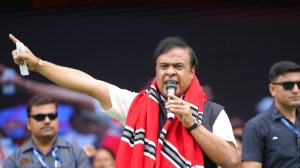Who is Urjit Patel
Within two months of his appointment, Patel faced the first challenge with Modi’s demonetisation decision, and then the tax revamp with the GST coming into play.
 Former Reserve Bank Governor Urjit Patel.
Former Reserve Bank Governor Urjit Patel.
RBI Governor Urjit Patel stepped down from his position Monday, almost a year before his three-year tenure ends, following a tussle between the government and the central bank. Patel, in a statement, said he is resigning “on account of personal reasons.”
Hand-picked by Prime Minister Narendra Modi, Urjit Patel was handed over the responsibility of the Reserve Bank of India on September 2016 as the 24th Governor of the central bank. Prior to that, Patel was a Deputy Governor since January 2013. He was given a three-year tenure till September 4, 2019.
Patel, whose experience includes a mix of stints with multilateral institutions, bureaucracy, central bank, global consultancies and even private companies, has previously served the International Monetary Fund (IMF) in the US, India, Bahamas and Myanmar.
Within two months of his appointment, Patel faced the first challenge with Modi’s demonetisation decision, and then the tax revamp with the GST coming into play.
In a mail he wrote to RBI employees on New Year’s eve, Patel, referring to demonetisation, wrote, “Let me emphasise that one thing we should all zealously guard is the integrity and reputation of our organization and any act belittling the same should deserve zero tolerance….”
This appears to have been the beginning of the souring of relations between Patel and the government. In June 2017, when the Finance Ministry sought to make a presentation to the monetary policy committee (MPC) ahead of its meeting on June 6-7, Patel asserted the central bank’s independence. On June 8, he told the media that the MPC had declined the ministry’s request.
RBI-Govt standoff
At the heart of the RBI-government standoff was a proposal by the Finance Ministry seeking to transfer a surplus of Rs 3.6 lakh crore, more than a third of the total Rs 9.59 lakh crore reserves of the central bank, to the government. After a rather public resentment of government interference in the RBI functioning, deputy Governor Viral Acharya had stressed the importance of the RBI’s autonomy.
The differences led to the government invoking, for the first time, a provision in the RBI Act-Section 7 to start the formal process of consultation with the RBI Governor on issues such as easing the prompt corrective action (PCA) framework for PSU banks, boosting liquidity and credit to medium and small enterprises and Non Banking Finance Companies (NBFCs), and transferring additional surplus from the RBI to the government.
Photos


- 01
- 02
- 03
- 04
- 05




























